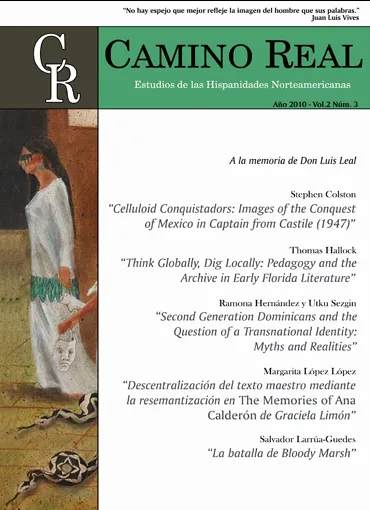
My analysis focuses on Graciela Limón’s novel The Memories of Ana Calderón to show; first, how the author participates in Ellen McCracken’s idea that Latina narrativists present alternatives to totalizing master texts, resignifying the ostensibly univocal nature of such claims to truth and at the same time foregrounding the limits of their own narrative enterprises; and second, how the text opens itself to literary experimentation, decentralizing and amplifying historical master texts to corrode the artificial border between gender and ethnicity. Considering the text’s focus on what Iain Chambers calls metaphors of movement, such as migration and diaspora, I explore how the returning and reelaboration of events in the protagonist’s life imply a need for a different way of thinking, that which allows for cultural transgressions by Chicanas not only in Western society, but also in the Latino community and family. I further illustrate how Limón utilizes strategies of resemantization of master texts to present alternative texts that form a new Latina identity. For this, I analyze how this counternarrative is structured around alternative reappropriations of the body, transgression, feminist strength, resignified religious imagery, and experiments with narrative voice to exemplify how Bakhtin’s concept of “double voice” unmasks the language of the other and articulates the author’s feminist discourse. The protagonist’s distancing from her place of origin opposed to the cultural sexist traditions is studied as a transformation of Bakhtin’s “intentional hybrid” in her new state/space in the U.S. – a heterotopia where she questions these traditions to make room for her liberation from such oppression and integration in a new social order in which Latinas are emerging cultural identities in transition situated in Anzaldúa’s state of being “mitá y mitá.” I conclude that by not insisting on the characters’ ethnicity and focusing on individual worth instead, Limón’s novel is directed towards a new way of thinking about borders as para-sites that never take over a field entirely but erode it slowly and tactically.


